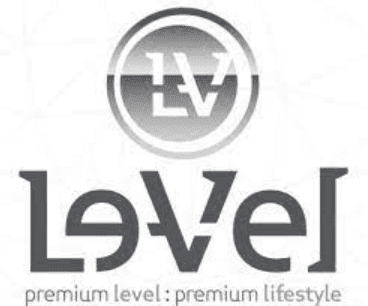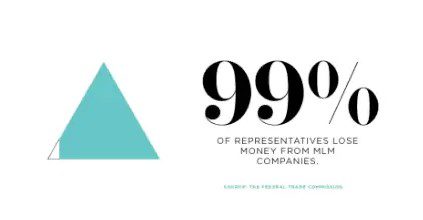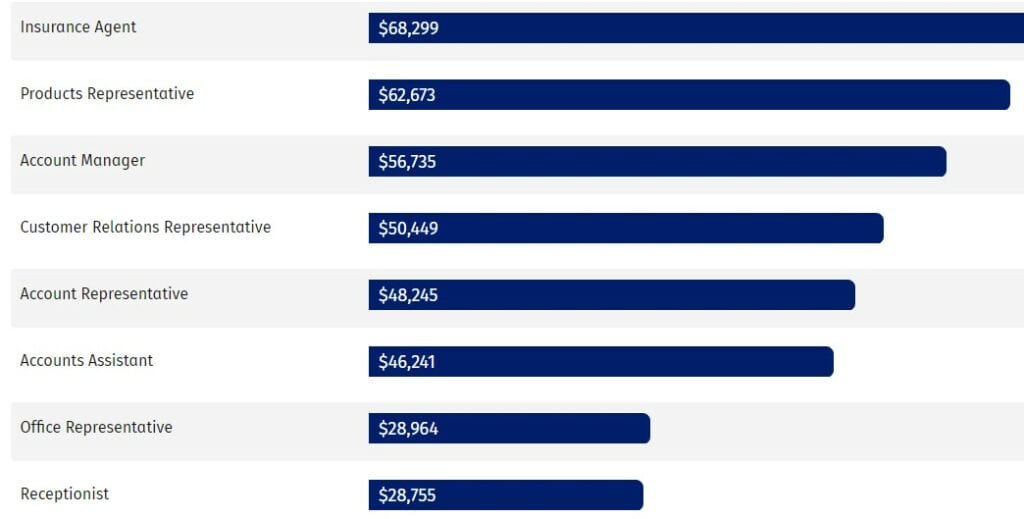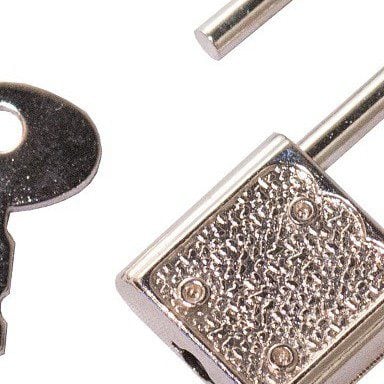Hi. Today I look at The dark side of MLMs
This list of 7 of the worst mlm companies should change your mind about MLMs and their cult-like activities.
The list is intended to save you time, money, and many headaches and heartaches along the way.
Of course they’re many more, but these 7 are some of the biggest in the business.
7 Of the Worst MLM Companies
Mirror, mirror on the wall,
which are the worst MLM companies of them all?
From cosmetics, wellness, jewellery and shawls,
we know many reasons why you should stay clear from them all!
1. Monat

Founders: Luis Urdaneta & Rayner Urdaneta
Founded: 2014
Industry: Hair products
Hair—a sign of beauty, health and joy.
Monat reps proudly toss their glowing, silky hair and promise buyers the same star-like results if they use the Monat hair product range.
The company, however, has a pile of complaints and lawsuits you couldn’t jump over, stating that their hair products cause: scalp irritation, sores, and hair loss!
And it gets even worse, reps try to sell off these side effects as a healthy and natural detox phase and to continue using the products to encourage the growth of strong, younger-looking hair.
Oh, and one more thing: The products are NOT cheap, costing way above the average shampoo and conditioner you find in your local supermarket.
As far as bad MLMs go, they don’t get much worse than this one!
2. Jeunesse

Founders: Randy Ray & Wendy Lewis
Founded: 2009
Industry: skincare products
Although Jeunesse’s skincare products are affordable and generally have positive reviews, this MLM company is far from being a legit business opportunity.
It’s a classic case where the top people become richer, and most of the sales reps are trapped in a vicious cycle of spending more money to stay in the game.
Still, somehow it continues to exist.
On top of lawsuits and money laundering, Jeunesse is also accused of operating a pyramid scheme —so do yourself a favor and stay away from this bad MLM.

3. Le-Vel

Founders: Jason Camper and Paul Gravette
Founded: 2012
Industry: Health & wellness products
For a company that advertises itself as a “premium lifestyle company” Le-Vel falls miserably short of expectations, earning a reputation as one of the worst MLM companies.
Their range of health and wellness products promises to help reduce weight, improve mental focus, boost energy levels and increase our overall physical performance.
These rather bold claims, however, have little or no foundation.

In fact, there is no scientific data to prove that their products actually work.
Considering that the company has grossed billions in sales, you’d think that they could add a few third-party regulated health and safety badges to their products.
Whether these products work is up to you to decide, but they’re not cheap to “just give them a go”.
If you’re entertaining the idea of becoming involved with Le-Vel, read these complaints at the Better Business Bureau.
At the time of writing this review, I could not access their site. It may be down or they have shut up shop. One can only guess.
You may have better luck getting onto their website.

4. doTERRA

Founders: David Stirling, Emily Wright, David Hill, Corey B. Lindley, Gregory P. Cook, Robert J. Young, and Mark A. Wolfert
Founded: 2008
Industry: Essential oils
Essential oils are popular for their feel-good scents that ignite feelings of love, peace, and calm.
But how about we attached a legit-looking label like “certified therapeutic grade” to make them more saleable?
This is the case of doTERRA, which has come under fire for making false claims about its essential oils.
And although their oils smell lovely, there’s no scientific evidence whatsoever about their medical benefits
So you’re basically buying more expensive essential oils that have the same effect as the ones that you can buy in your local health shop.
How Much Can You Earn as a doTerra Representative?
Check out this table from its 2017 income disclosure as calculated by Financial Media Group, Fat Tail Media.
| DoTerra Rank | Average Annual Earnings | Percentage of all Advocates |
| Entry | $46 | 76% |
| Manager | $752 | 9.7% |
| Director | $1,250 | 5.8% |
| Executive | $1,837 | 2.8% |
| Elite | $4,370 * | 3.9% |
| Premier | $11,260 * | 0.9% |
| Silver | $27, 557 | 0.62% |
| Gold | $58, 509 | 0.21% |
| Platinum | $112, 965 | 0.07% |
| Diamond | $201, 764 | 0.07% |
| Blue Diamond | $463, 555 | 0.02% |
| Presidential Diamond | $1,259, 587 | <.01% |

5. Plexus
Founders: Tarl Robinson
Founded: 2006
Industry: Health & Wellness
There’s only one word to describe Plexus weight loss products: Useless.
From fat burners to detox products, their range contains ingredients that are either not proven to do anything or, if they are, theirs is not concentrated enough to have any effect.
Think about it: if their products worked, anybody could take a pill or have a shake mix to reach their ideal weight, right?
So how about trying this instead to shed a few pounds:- A healthy, balanced diet.
But it’s not just their products that make Plexus one of the worst MLM companies.
Although it’s an established business that sells legit products, they focus a lot on recruiting.
And to me, this sounds like a pyramid scheme in disguise.

6. Primerica
Founders: Arthur L. Williams Jr.
Founded: 1977
Industry: Financial services and insurance
Primerica has been around for a long time and was once part of Citigroup which spun it off back in 2010. However, like all bad MLMs, it has its fair share of lawsuits.
But the issue is not their life insurance policies or financial services, which, although more expensive, actually work.
The issue is with their compensation plan, which is not worth your time and effort.
The average Primerica rep only makes barely over $5,000 in annual income.
Literally below the poverty line.
It’s way, wayyy less than what you can make working for a traditional life insurance company.

Whether you become a part-time or full-time Primerica agent, if you’ve got a talent for selling life insurance and other financial services, why not work for a proper life insurance company?
You’d be paid a lot more than Primerica, or any other MLM would ever pay you.
You can see More on Primerica Here.
7. Dagcoin

Founders: Nils Grossberg
Founded: 2017
Industry: cryptocurrency
If you’re looking for investment opportunities that go nowhere, Dagcoin is the one for you.
Basically, you invest an amount of money and you get an equal (or almost equal) amount of Dagcoins in return. But as the cryptocurrency is not yet publicly tradable it has literally no value.
While in theory, they sell cryptocurrency training courses (it’s an MLM after all, they have to sell something), in reality, the educational side is farcical.
All the money they make is through sales reps who earn a commission every time they recruit new members.
A better crypto MLM can be seen here.
In other words, Dagcoin is a Ponzi scheme, where no money is actually made, just redistributed.
Conclusion: Are all MLMs bad?
MLMs are all over the place, and while not all of them are bad, many are scams, pyramid schemes, or downright awful.
The cold, harsh reality of an MLM is that to succeed and reach the top, you must sell others a dream that is mathematically unobtainable for all but a handful of people.
Remember, these MLM horror stories you hear and read about are not just stories but real-life tragedies that affect millions of people all over the world.
Recognizing the red flags of an MLM scam is essential, but talking about the dangers of joining bad MLM companies is even more important.
When we talk about it, we can stop more people from getting stuck in these money traps, time-wasting, and soul-crushing MLM “opportunities”.
What other bad MLMs do you think should be added to the list? Let us know in the comments below and help raise awareness about the dangers of joining an MLM business opportunity.
Special Mention.
I have just finished a review of one of the most blatant MLM / Affiliate scams I have come across.
I come across a lot actually. but this one is so unsophisticated.
Generally, people take things at face value, but when simple agreements are not kept, the poo hits the fan.
As always feel free to leave a comment in the comment box below.
Thanks for reading. Coffee time!










You have pointed out some of the bad MLM companies and have explained the reasons why they are bad. I have had experience in the past with a couple of MLM companies and I couldn’t do it, trying to convince people to join was never comfortable for me.
I absolutely think that Wealthy Affiliate gives me a better opportunity to learn and apply real business acumen for online opportunities without the SELL aspect. Your post gives anyone new who seeks the MLM path something to think about.
First of all, it’s pretty eye-opening that 99% of DoTerra representatives make less than $12,000 a year. 75% make less than $50. Wow! I think that’s pretty standard but somehow they still pull people in with promises of a better life, often charging absurd amounts for “starter kits” and requiring minimum monthly purchases. Not all MLMs are bad, though. I am a representative for several well-known “house party” companies and I do ok. I can’t support myself on it but I also don’t have monthly requirements for sales. And every time I have a party, I get myself a nice little commission check that will very nicely take me out to lunch or buy me a new pair of shoes. It’s all about expectations and “doing the math” in regard to how much you have to shell out each month.
Thank you, Elena, for doing this research and sharing this valuable information.
Though I understand the flexibility for mothers raising kids but facts on the ground show there many legit and equally flexible opportunities out there while looking for a side hustle, MLM shouldn’t be an option.
Affiliate marketing is a good option for moms looking for a balanced life between their business and family activities. Though you need to put in some time and effort, it will literally pay off in the end.
It’s sad to know the products are not cheap and still don’t meet up with the required quality.Though I’m not familiar with these brand names yet handicapped with these details, I will surely watch out and be more careful in the future.